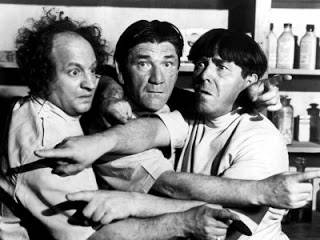 Ethos is a Greek word meaning “character” that is used to describe the guiding beliefs or ideals that characterize a community, nation, or ideology. Ethos forms the root of ethikos, meaning “moral, showing moral character”. Late Latin borrowed it as ethicus, the feminine of which is the origin of the modern English word ethics. Strong morals however, without a strong “Ethos”, will only create a pseudo leader in the eyes of subordinates, due to one’s inability to turn a decision into action, especially during a crisis situation, when there is no play book to follow, and the ability to seize the moment is a must. It is my belief that leadership strategists, to a degree, have ignored the cultivation of a leadership ethos, and have instead created moral compartmentalization, behaviors that focus on self preservation and careerism, which inevitably erodes the important foundation of trust between would-be leaders and their rank and file. In my opinion, this does nothing to encourage the “follow me” leadership attitude needed to move ahead in today’s challenging times.
Ethos is a Greek word meaning “character” that is used to describe the guiding beliefs or ideals that characterize a community, nation, or ideology. Ethos forms the root of ethikos, meaning “moral, showing moral character”. Late Latin borrowed it as ethicus, the feminine of which is the origin of the modern English word ethics. Strong morals however, without a strong “Ethos”, will only create a pseudo leader in the eyes of subordinates, due to one’s inability to turn a decision into action, especially during a crisis situation, when there is no play book to follow, and the ability to seize the moment is a must. It is my belief that leadership strategists, to a degree, have ignored the cultivation of a leadership ethos, and have instead created moral compartmentalization, behaviors that focus on self preservation and careerism, which inevitably erodes the important foundation of trust between would-be leaders and their rank and file. In my opinion, this does nothing to encourage the “follow me” leadership attitude needed to move ahead in today’s challenging times.
Aristotle described “ethos” as a type of leadership in which a leader influences others to change their values, and thus their performance. A leadership ethos is not about what a person says or promises. It is about one’s presence, behavior, beliefs, and core leadership principles that affect how others will follow. A leadership ethos creates a personal “aura” that is attractive and one that others will turn to in time of need.
So what is a leadership ethos?
A leadership ethos is based upon principles rather than values. Principles are foundational and timeless, whereas values are usually derived from accepted norms whose underlying bases rely on contemporary wisdom of ideas of the day. Values tend to fluctuate with trends and conventional wisdom. Principles however, transcend time, feelings, and individual desires, and involve fundamental truths as the basis for reasoning or action.
In his book, “Leadership Secrets of the Rogue Warrior”, Richard Marcinko (founder of SEAL Team Six) created his own leadership ethos which contained seven basic principles that include:
- I will test my theories on myself first. I will be my own guinea pig
- I will be totally committed to what I believe, and I will risk all that I have for these beliefs
- I will back my subordinates all the way when they take reasonable risks to help me achieve my goals
- I will not punish my people for making mistakes. I will only punish them for not learning from their mistakes.
- I will not be afraid to take action, because I know that almost any action is better than inaction. And I know that sometimes not acting is the boldest action of all
- I will always make it crystal clear where I stand and what I believe
- I will always be easy to find: I will be at the center of the battle
I leave you with one final thought on character. I once heard it defined as this: Your character is defined as how you act, and what you do, when nobody is watching, or how you treat people when you have no reason to treat them well.
I think to be a good leader, you have to be willing to be a good follower. One of the men I am following is Richard Marcinko. And that is a bit of my leadership ethos.
Caring is sharing. Will you please share this with your network?
 Here is challenge that you may have to face at some point in your leadership career. You will encounter two types of leaders. Elected leaders and Influential leaders.
Here is challenge that you may have to face at some point in your leadership career. You will encounter two types of leaders. Elected leaders and Influential leaders. Now consider the second type – the Influential leader. This person generally does not have real leadership skills. Yet they have a position of leadership in spite of it. They generally attain the position through shear force of personality. That may be just a euphemism for being a bully. But that is not always the case. Sometimes it is because they possess a specialized skill. Sometimes they attain it through longevity within the organization. Sometime they attain the role of leader through fame, notoriety, family or financial position. These are the leaders that are difficult to work with or work for.
Now consider the second type – the Influential leader. This person generally does not have real leadership skills. Yet they have a position of leadership in spite of it. They generally attain the position through shear force of personality. That may be just a euphemism for being a bully. But that is not always the case. Sometimes it is because they possess a specialized skill. Sometimes they attain it through longevity within the organization. Sometime they attain the role of leader through fame, notoriety, family or financial position. These are the leaders that are difficult to work with or work for. 






